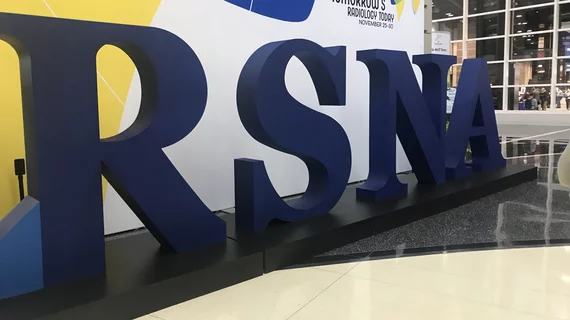RSNA will require proof of vaccination, masks at this year’s annual meeting
The Radiological Society of North America announced Thursday that it will require proof of vaccination for all in-person attendees during its annual conference this coming winter.
Attendees and exhibitor staff are being asked to provide evidence they’ve been vaccinated either prior to the meeting or upon admittance to McCormick Place, the Oak Brook, Illinois-based society said in a statement. Further instructions, including the verification process, will be sent out in the coming weeks, RSNA added.
RSNA 2021 will also require attendees to wear masks in all public indoor spaces, in accordance with the Centers for Disease Control and Prevention recommendations.
“With a mission that focuses on health and patient care, RSNA is strongly committed to protecting the health and safety of all meeting attendees, and—by extension—their families, colleagues, friends, and the global community,” President Mary C. Mahoney, MD, explained. “As the convener of the world’s leading medical imaging forum, we want to provide the safest possible meeting environment for all our participants.”
Additionally, RSNA said it is working with the City of Chicago and McCormick Place to provide a safe experience for attendees.
The society’s 107th meeting is set to take place in Chicago, Nov. 28-Dec. 2. RSNA is offering much of the meeting in a virtual format for those who cannot attend and for unvaccinated registrants to participate remotely.
Visit RSNA.org for more information.

